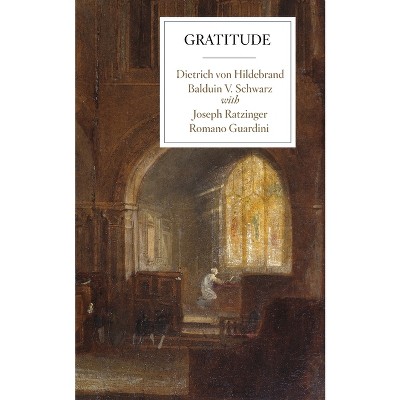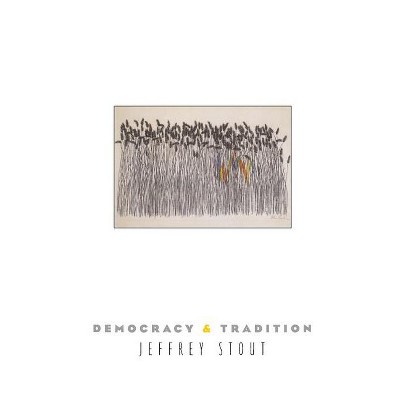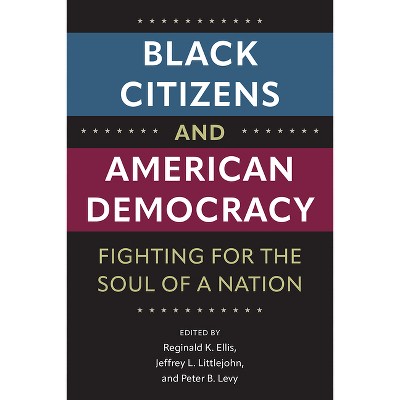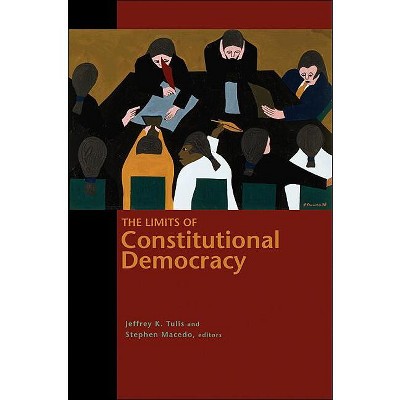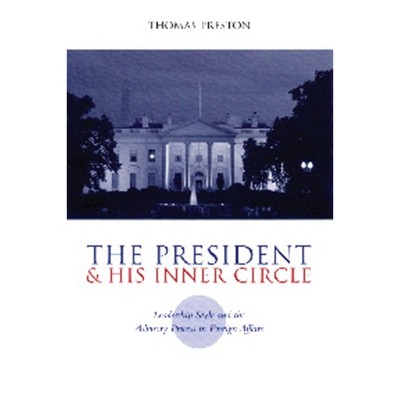Sponsored

Everyday Democracy - (Chicago Studies in American Politics) by Jeffrey M Berry & James M Glaser & Deborah J Schildkraut
In Stock
Sponsored
About this item
Highlights
- How the everyday habits and attitudes of ordinary liberals and conservatives shape the health of American democracy.
- About the Author: Jeffrey M. Berry is professor emeritus of political science at Tufts University.
- 256 Pages
- Political Science, Political Ideologies
- Series Name: Chicago Studies in American Politics
Description
About the Book
"How the everyday habits and attitudes of ordinary liberals and conservatives shape the health of American democracy. In Everyday Democracy, Jeffrey M. Berry, James M. Glaser, and Deborah J. Schildkraut study Americans' views of several manifestations of "everyday democracy," which they define as the attitudes, behaviors, and processes that people experience in daily life and their routine considerations of politics and community. Examples include engaging in dialogue with political opponents and giving politicians license to compromise. Ordinary political moments like these constitute much of politics, and they can lay the foundation that shapes if, when, and how crisis moments unfold. Paying particular attention to the role of ideology in shaping how Americans emulate daily democratic ideals, this book considers such questions as: How do liberals and conservatives support different aspects of democratic practice, and are there ideological asymmetries between the two groups? If and when asymmetries emerge, what factors might explain them? The authors consider what their findings mean for the health of American democracy broadly"-- Provided by publisher.Book Synopsis
How the everyday habits and attitudes of ordinary liberals and conservatives shape the health of American democracy.
In Everyday Democracy, Jeffrey M. Berry, James M. Glaser, and Deborah J. Schildkraut study Americans' views of several manifestations of "everyday democracy," which they define as the attitudes, behaviors, and processes that people experience in daily life and their routine considerations of politics and community. Examples include engaging in dialogue with political opponents and giving politicians license to compromise. Ordinary political moments like these constitute much of politics, and they can lay the foundation that shapes if, when, and how crisis moments unfold.
Paying particular attention to the role of ideology in shaping how Americans emulate daily democratic ideals, this book considers such questions as: How do liberals and conservatives support different aspects of democratic practice, and are there ideological asymmetries between the two groups? If and when asymmetries emerge, what factors might explain them? The authors consider what their findings mean for the health of American democracy broadly.
Review Quotes
"Berry, Glaser, and Schildkraut offer a nuanced and data-rich assessment of where our democracy stands today. Their findings provide a warning as well as hope for the future--a future where citizens on both sides of the fence talk to each other and are willing to compromise while still defending our most important ideals."--Beth L. Leech Rutgers University
"The authors compellingly explore how liberal and conservative Americans fare in terms of everyday democracy, such as their engagement across the political divide, media consumption, and support for compromise. This book adds much to our understanding of how citizens actually engage in democracy in their daily lives."--Matthew Levendusky author of "Our Common Bonds: Using What Americans Share to Help Bridge the Partisan Divide"
About the Author
Jeffrey M. Berry is professor emeritus of political science at Tufts University. He is the author of several books, including, most recently, The Outrage Industry: Political Opinion Media and the New Incivility.James M. Glaser is executive vice president and provost of Santa Clara University where he is also professor of political science. His most recent book is Changing Minds, if Not Hearts: Political Remedies forRacial Conflict. Deborah J. Schildkraut is the John Richard Skuse, Class Of 1941, Professor of Political Science at Tufts University. Her most recent book is States of Belonging: Immigration Policies, Attitudes, and Inclusion.Shipping details
Return details
Frequently bought together
Trending Non-Fiction









